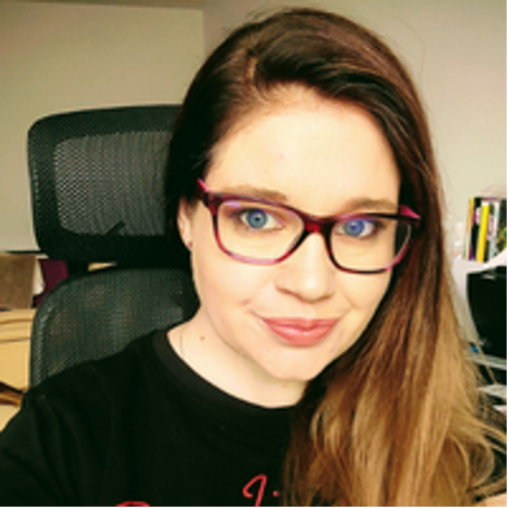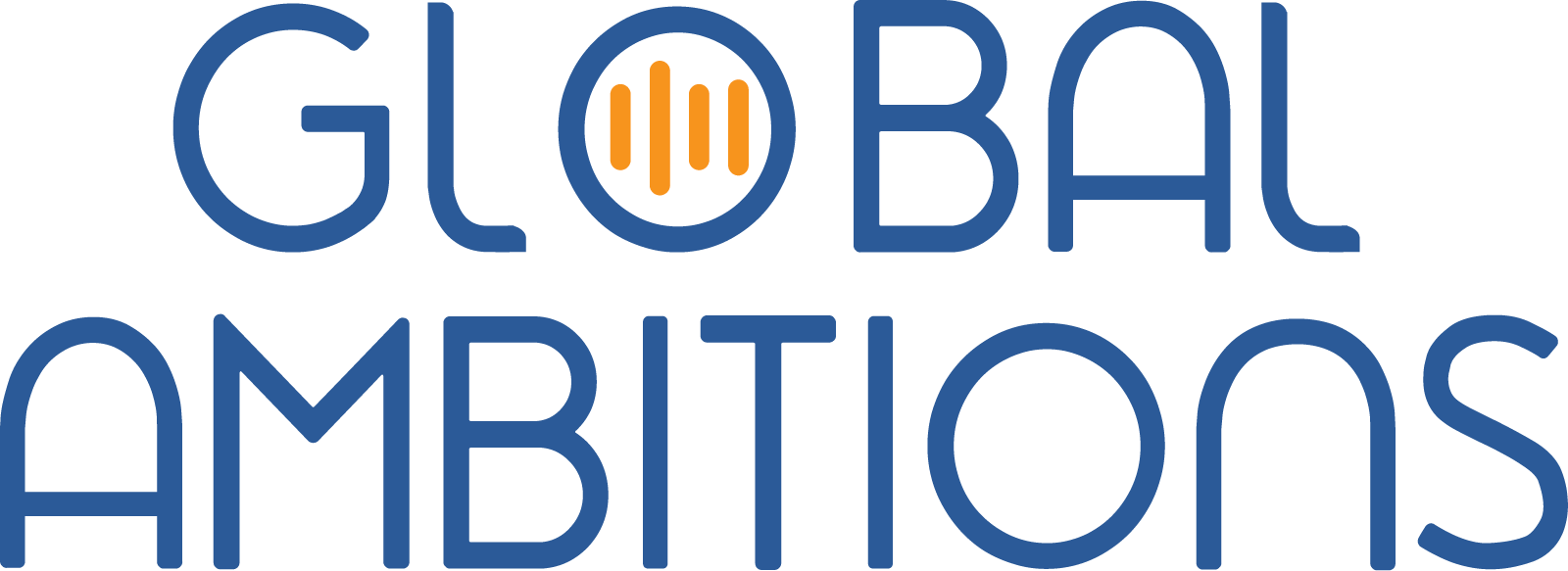With Sarah Presch, Digital Marketing Director at Argos Multilingual
Below is a full transcript of this episode
Stephanie Harris
Hi, my name is Stephanie Harris, and I’ll be your host today for this episode of Global Ambitions. Our guest today is Sarah Presch, and she’s the Director of Digital Marketing at Argos Multilingual. Our topic today is International pay-per-click, PPC. Sarah, welcome to the program.
Sarah Presch
Hi, thanks for having me.
Stephanie Harris
So can you give us a quick synopsis of your background, your history and how you’re connected with this topic?
Sarah Presch
Yes, so I have a bit of a mixed background, so I’ve been working for Argos since 2021 and do all of your lovely digital marketing stuff. But yeah, I’ve been in digital marketing now for about ten years. I actually ran my own business a good few years ago. I teach digital marketing at Strasbourg University to MBA students and also I have a background in psychology as well. So it’s good mix which makes it nice.
Stephanie Harris
Okay, so international PPC. So what is that? I know a lot of folks are familiar with pay-per-click, but how does the international aspect differentiate itself from the regular pay-per-click?
Sarah Presch
Yeah, So I think there’s kind of a big myth. That international PPC is something completely different. It’s not. It is exactly the same PPC you get, the only different thing is it is in a different language and it’s targeting different countries, which is where most people have problems because, of course, it’s very rare that somebody is going to speak all the languages on the earth and be able to manage them themselves.
Stephanie Harris
Okay. So with this international aspect then, what are the common challenges that you’ve seen people have with the whole experience?
Sarah Presch
I think it’s kind of a lack of awareness of how PPC actually works, because if you’re not familiar with PPC, you probably think, Oh, I just create some ads, upload them, they’re going to show on Google, maybe follow somebody around for a couple of days, and that’s it. Simple. But actually, if you go inside the backend if you take a look at AdWords itself and how it actually works there’s an awful lot more to it than people actually first think.
And one of the biggest issues I kind of see is that say in the language industry or in our international kind of industry or how we work, is that normally digital marketing managers or people who manage the PPC will get in touch with the localization managers and then they’ll be like, Oh, okay, I need these ads translated. They don’t normally give any kind of real extra info apart from, you know, the text. Some people will be like, Oh, okay, it’s PPC, so it is going to have character limits or something like that. But you know, the information is not shared about whether it is a search ad, it’s a shopping ad, if it’s a display ad, because all of them have different requirements, lengths, different setups, and also kind of what are the key words for it?
Because most people forget to do the keyword research for PPC ads, which is really, really important because when you’re putting together the ad groups internationally, an ad group might not actually work because, you know, people search differently everywhere. And while you have the one nice German ad, great, for example, in Spanish, people aren’t looking for it at all, whatsoever.
So you actually have to adapt the keywords and the ad groups and go right back to the drawing board, if that’s the case. And then as well, negative keywords. You have different competitors , different negative keywords, and maybe different things that you don’t want to rank for. But again, if the people doing the translation don’t know about it, then it’s really tough. Right?
Stephanie Harris
Okay. So if I’m just starting out and I know that I need to have some international ads going out. How do I do this? Is this something where I need to outsource to an agency? Will my LSP be able to handle this if I give them a better brief? How does this work?
Sarah Presch
This is where it really depends on the provider. So either you could go for an LSP who is kind of really experienced in digital marketing and actually does PPC ads like kind of a digital marketing agency, does PPC ads, or you can use a digital marketing agency or PPC agency, which is kind of the most common way people do things. But you really, really have to make sure that the digital marketing agency actually does things properly for the foreign languages.
Because again, they can fall foul to the fact that, Oh, we’ve got this in German, we’ll just send it for translation and that’s it. They won’t have anybody to do the maintenance and then it’s kind of difficult. So yeah, as I mentioned, make sure that you find the provider who has the international experience, has the PPC experience, and it’s got to be the PPC experience in there and then kind of take it from there.
Stephanie Harris
So you mentioned having someone who can go in and make changes. What’s the frequency that should be expected of someone, a professional PPC person? Should they be going in there once a month to adjust things? What should we be expecting from them?
Sarah Presch
Yes. So it really depends on the campaign and kind of what frequency you want to do. But I always recommend, even if you’re a small company just starting out, you need to be going in and looking on a weekly basis because if you don’t, you’re just going to be throwing money away on ads that don’t work. Where actually it could be going in and saying, okay, that call to action does apply. If it works really well in this ad, let’s change that. Or these type of keywords are working really well and this group is doing really well, but this one isn’t. Why don’t I change my budget for the one that’s doing bad ? Or for the one that’s doing really good. So the more maintenance you have, the more changes that you make , the more you know, the better the ads become and and more ROI you’ll get.
Stephanie Harris
So that leads me to the next question, which is around KPIs. Do you have any advice or recommendations on how a company can set good PPC KPIs for their whole program?
Sarah Presch
Yes. So again, it’s kind of really depends on the industry kind of what goals you do have. But there’s loads of different website lists that you can check where you can say, Oh, look, I’m an e-commerce store, what should my, you know, standard CPC be, average, CPC be, that sort of thing. So it’s always a good idea to kind of get a benchmark against other people in your industries. And again, conversions are not so clear cut. So anything could be a conversion. It could be, you know, some people want phone calls from PPC ad, some people want app downloads, some people want visits to their store, some people want people to sign up for newsletters. Some people would need to go to the page and actually buy a product. If it’s a shopping ads.
So again, it’s make sure that the goals and the KPIs that you have are realistic. Do you smart goals as every marketer should do and then as well, make sure that it is completely relevant and realistic to what you’re doing. And it makes sense for the business because if you want people to come into the store, but you’re actually tracking website visits relevant to get together.
Stephanie Harris
Okay. Well, Google is kind of the main one that most folks are familiar with since that’s what we see a lot in Western countries and other places. But I’m sure with pay per click it, it’ll vary a lot depending on country. What are kind of the big players out there in the field besides Google?
Sarah Presch
Talking about Google first. It’s not just a case of kind of Google being the king. Absolutely. Everywhere. You got to know it from a cultural perspective as well, because if you take a look at Germany and Denmark, the two neighboring countries, Danes love PPC. It is one of the main channels that they go with. But Germans absolutely hate PPC because they feel it is kind of not as trustworthy as SEO because you can just pay and get to the top. And they’d much prefer people working on their strategy and doing it that way. So, you know, not everywhere trusts PPC ads, not everywhere is up to the same standard everywhere. So you need to have a look at the country and see kind of what their buying culture is and what channels they like the most.
And then you’ve got the extra challenge of some countries don’t like Google whatsoever. So you’ve got like China, where you can’t use Google and you’ve got to use more of the local channels. And then, for example, talking about Japan, the Japanese are kind of 50/50 between Google and Yahoo. Foreign companies don’t normally tend to realize that. So they pay 100% of their Japanese ads into Google, and then they’re losing out to local companies who are advertising on Yahoo! Because that’s where lots of people are kind of used to searching, and they’re missing out on a big chunk of the market just because they’re not doing Yahoo! Ads.
Stephanie Harris
Okay. So you mentioned that in some countries, you should probably be focusing more on pay-per-click strategy and others on SEO. So oftentimes, we hear these kind of get grouped together in the same bundle. But what are the different skills you need to look at if you’re hiring someone from outside to run your PPC versus your SEO? How are the jobs different?
Sarah Presch
Yeah, so like of course PPC and SEO kind of come under the same, you know, search engine marketing umbrella, but they’re very different skillsets. Like SEOs who deal with technical SEO every day, with content every day might not be well-versed in dealing with PPC ads. Have it the other way around that people PPC managers are so used to working in AdWords that actually if you tell them to optimize my site, they’ll be like, No, please let me see PPC ads.
So like, you have to remember that it’s not a case of kind of one size fits all, especially in the whole digital marketing group. We wouldn’t hire somebody who has email marketing experience, SEO, PPC, social media… can do all of them absolutely perfectly. So it’s always better to either get internal, I would say separate SEOs and PPC people. Or if you can’t get the PPC people rather than just kind of winging it, go for an agency, somebody that can help.
Because when it comes to PPC as well, we’ve already talked about them needing maintenance and you know, you should do maintenance once a week in order to do the maintenance. You need to understand Google AdWords, you need to understand analytics and help to track everything together. And also you need to speak the language as well, because you’re not going to know how to say, Oh, I need to change the call to action but I don’t speak Spanish. How am I going to write that? Oh, just send it back for translation. Like it’s not going to work. It’s going to eat up lots of time and you’re not going to have, you know, very successful ads in the meantime. Whereas actually, if it’s little slick and you use somebody who speaks the language, they can just go in and change it, do it quickly, and then you get better results. So you won’t be paying so much.
Stephanie Harris
Right. Well, have you seen any cases or companies that have really done this whole process well?
Sarah Presch
Yeah, I think it’s kind of like the companies that actually realize that PPC is a different service, so they give it kind of the TLC that it requires and also the same kind of TLC when it comes to the different languages. So they don’t say, okay, I’m going to pay an agency, put lots of money into my English, do my English absolutely perfectly, and then just translate it into French and hope that it works the same way. They’ll be working with a French PPC person or an agency that has the French PPC person who will actually create their own ads in those different markets, who understand the culture, understand how AdWords works, and can actually make those changes and do this maintenance and actually do exactly like they would for the English but for the different languages as well.
Stephanie Harris
Great. Well, we’re almost out of time, but I do have one final question. Do you have anyone who you would love to see on the show?
Sarah Presch
Yeah. So I can do a big shout out to Corey Lendrum and Daz Moss, PPC people that I enjoy following on LinkedIn.
Stephanie Harris
Very good. All right. Well, thank you so much, Sarah. It’s been great to have you on the show.
Sarah Presch
Thank you so much for having me.

Sarah Presch
Digital Marketing Director, Argos Multilingual




